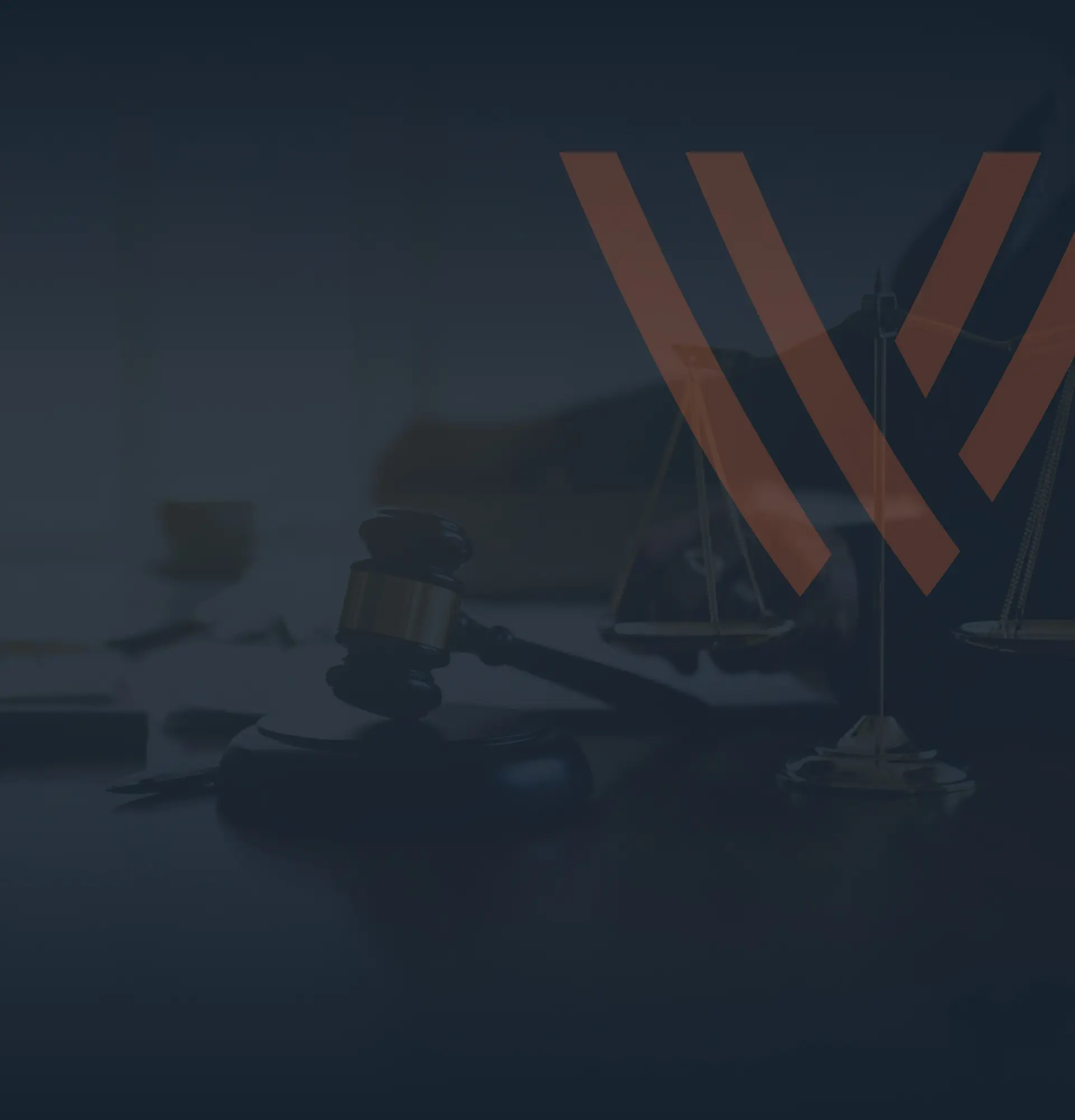
Discrimination & Wrongful Termination Attorney in San Francisco
Workplace Dispute Resolution Services in the Bay Area
No one should face an unhealthy or hostile work environment. State and federal laws prohibit discrimination in the workplace and during hiring. These laws also bar retaliation and wrongful termination. Litigation may become necessary if you experience unlawful discrimination or lose your job for reporting abuse or any other protected reason.
Our San Francisco discrimination and wrongful termination lawyers have decades of combined litigation experience and help employees and employers navigate complex workplace disputes. We know the intricacies of employment law and understand how California courts adjudicate these conflicts. At Wood Litigation, APC, we champion employee rights and can review your legal options. We also defend employers facing discrimination and wrongful termination claims.
San Francisco's vibrant and diverse workforce includes employees across technology, finance, education, healthcare, and hospitality. The city’s fast-paced business scene and progressive standards make addressing employment disputes both critical and nuanced. We work with clients throughout the Bay Area—including Marin, Alameda, and San Mateo counties—and adapt our strategies to meet the local needs of businesses and individuals. Many employment cases in San Francisco proceed through the Superior Court, and our knowledge of this process helps clients navigate each step effectively.
For trusted legal guidance, reach out to a knowledgeable San Francisco wrongful termination lawyer. Call (415) 936-0300 or contact us immediately to schedule your consultation.
How Wrongful Termination and Discrimination Cases Are Handled in San Francisco
Wrongful termination and discrimination cases in San Francisco require a thorough understanding of both statewide statutes and unique city ordinances. Individuals often begin the process by filing a complaint with the California Civil Rights Department or the U.S. Equal Employment Opportunity Commission (EEOC), depending on the circumstances. Many cases in San Francisco also pass through the Office of Labor Standards Enforcement, which oversees various local employment protections. The city’s culture of innovation and advocacy shapes how claims are investigated and resolved, often leading to additional mediation or alternative dispute resolution opportunities before litigation starts. Navigating this environment requires a careful approach—one that balances California’s broad worker protections with San Francisco’s more expansive local ordinances. At Wood Litigation, APC, we stay informed about local developments and maintain professional relationships within the legal community, which helps clients present strong, well-prepared cases throughout each phase of the process. For both employees and employers, understanding the correct venue for a claim and recognizing available local resources offer important advantages at every stage. Get in touch with a skilled wrongful termination lawyer in San Francisco right now.
Employee Discrimination Laws in California
State and federal law provide employees with legal protection from workplace discrimination. On the federal level, Title VII of the Civil Rights Act of 1964 bars employers from discriminating against employees and applicants based on race, national origin, color, sex, or religion. Court decisions further clarify that Title VII prohibits discrimination due to sexual orientation and gender identity. The Age Discrimination in Employment Act bans age-based discrimination for employees and applicants at least 40 years old, while the Pregnancy Discrimination Act protects against discrimination based on perceived or actual pregnancy status.
California law provides even broader protections and prohibits employers from discriminating against employees and applicants based on:
- Race
- Color
- National Origin
- Religious Creed
- Ancestry
- Physical Disability
- Genetic Information
- Mental Condition
- Mental Disability
- Sex
- Sexual Orientation
- Gender
- Gender Expression
- Gender Identity
- Marital Status
- Age
- Military Status
- Veteran Status
Discrimination claims in California often involve navigating state agencies like the Department of Fair Employment and Housing (DFEH) as well as specialized rules unique to the state, including diverse local ordinances in cities such as San Francisco. The San Francisco Office of Labor Standards Enforcement (OLSE) adds further rules and regulations to strengthen local employee protections, which means both employers and employees must stay current on these specific requirements. At Wood Litigation, APC, we remain dedicated to understanding local policy changes that could impact your potential claim or defense.
Recognizing Signs of Discrimination During the Hiring Process
Employers cannot treat you differently based on any protected factors identified by state and federal law. These anti-discrimination protections apply to the hiring process, so a recruiter or interviewer cannot make comments or hiring decisions based on protected aspects of your identity.
In most cases, job descriptions and hiring solicitations also cannot be discriminatory. For instance, a job posting cannot specify that only men should apply.
Warning signs of racial discrimination during a hiring process include:
- Job postings that encourage certain applicants or discourage others from applying
- An interviewer asking if you can “keep up” if you are older or physically disabled
- An interviewer asking about family plans or if you intend to start a family soon
- An interviewer asking invasive questions about your country of origin, accent, pregnancy status, marital status, gender orientation, sexual orientation, or health
If you believe you were not hired because of your response or non-response to a discriminatory question, you may have a case. Our team can review the facts and advise you on how to proceed.
Applicants in San Francisco receive particularly robust legal protections thanks to both California laws and local hiring ordinances. For example, San Francisco’s Fair Chance Ordinance limits how employers consider criminal history during hiring, and the city enforces “Ban the Box” measures to prevent discrimination against individuals with prior convictions. These unique city-specific rules require employers in San Francisco to carefully structure their hiring processes. If you encounter discriminatory questions or screening tactics, documenting the specific language or conduct can help in an eventual claim or consultation.
Recognizing Signs of Discrimination in the Workplace
Some workplace discrimination is egregious and obvious. Other times, discrimination may be harder to detect but still causes serious harm to your career and well-being. Look for behaviors and patterns that may point to unlawful discrimination at work.
San Francisco’s workplace laws require most employers to follow rigorous standards on equity and inclusion. Many issues arise around covert or indirect forms of discrimination, especially in tech and professional services, where subtle bias can affect advancement or job assignments. Employees should note any policies or practices that disproportionately impact protected classes. California law generally allows you to use comparative or statistical evidence to support a claim. Under the San Francisco Family Friendly Workplace Ordinance, employers must also address discrimination against caregivers or parents, including subtle changes in workload or workplace culture for those with family responsibilities.
You may experience workplace discrimination if:
- Your supervisors or colleagues make inappropriate references or jokes involving a protected part of your identity, such as your race or gender orientation
- You are excluded from company meetings or functions because of a protected element of your identity
- You are passed over for promotions, assignments, or advancement opportunities because of a protected element of your identity
- You face sexual harassment from a supervisor or colleague
- You face verbal harassment or demeaning comments due to a protected part of your identity
- You receive poor performance reviews despite clear evidence of strong results
- You discover unequal compensation compared to peers with similar qualifications and responsibilities
- You are denied reasonable accommodations for a physical disability, medical disability, religious beliefs, or pregnancy status
Retaliation may take subtle forms, including exclusion from work-related networking events, repeated assignment to less desirable shifts, or increased scrutiny of your performance after you raise a complaint. In San Francisco, employees in protected classes—including LGBTQ+ workers, pregnant workers, or individuals with disabilities—may benefit from additional local legal safeguards. These added protections mean employers must stay vigilant about fair treatment, and employees should document any changes in work status, reviews, or conditions after asserting protected rights.
If any of these scenarios resemble your circumstances, contact our San Francisco discrimination and wrongful termination attorneys. We can explore your options for filing a claim.
Recognizing Signs of Wrongful Termination
Company handbooks universally condemn workplace discrimination and usually direct victims to report issues to HR. Often, you should seek legal advice before going to HR. Although employees are legally protected from retaliation, too many workers are wrongfully terminated soon after reporting workplace discrimination.
Wrongful termination cases in California require prompt action due to legal deadlines. San Francisco workers can access unique options for reporting or appealing dismissals through local or state administrative channels. Local agencies, such as the San Francisco Human Rights Commission, handle some complaints alongside state or federal offices and may review cases with added urgency for members of protected classes in the Bay Area workforce.
State and federal laws protect employees from retaliation or firing for raising concerns or making formal claims about workplace discrimination. Firing someone on discriminatory grounds also constitutes wrongful termination.
Like discrimination, wrongful termination may be obvious. Sometimes, though, employers use tactics to conceal the true reason for terminating an employee. In some cases, an employer retaliates but does not directly fire the employee, instead attempting to “incentivize” them to quit. All such actions are unlawful.
You may have been wrongfully terminated if:
- You were “let go” after reporting a workplace discrimination issue to HR
- You were “let go” after filing a workplace discrimination claim with the California Department of Fair Employment and Housing (DFEH) or the U.S. Equal Employment Opportunity Commission (EEOC)
- You were “let go” after your employer learns you are pregnant or plan to become pregnant
- You were “let go” after discussing compensation with coworkers
- You were “let go” after requesting reasonable accommodations
- You were “let go” as part of layoffs that appear to target a particular group
Keep in mind, an employer who wrongfully terminates you will rarely be honest about their reasons. Often, they cite layoffs or job performance to justify dismissal.
Documenting your experience is especially important in San Francisco, where many companies have dedicated HR departments and legal counsel that frame terminations as lawful. Keep all correspondence, emails, and performance documentation. Seeking legal guidance quickly can make the difference between preserving and losing vital evidence or rights under local, state, or federal law.
Proving workplace discrimination or wrongful termination can be challenging. If you believe you are experiencing discrimination or could soon face wrongful termination, keep as much physical evidence as possible. This includes emails and written communications. Document all conversations as they occur, including discussions with HR or supervisors.
Also record any retaliatory actions before your termination, such as reductions in work assignments, job responsibilities, hours, or pay.
Bringing a wrongful termination claim may be difficult, but we have the knowledge and resources to approach your case with the diligence and attention it requires. A successful claim can enable you to recover damages and potentially regain your position.
Statute of Limitations and Critical Deadlines for San Francisco Claims
Time limits matter in wrongful termination and discrimination cases. In California, employees generally have three years from the date of the alleged unlawful act to file a complaint with the Civil Rights Department and Housing for most claims under the Fair Employment and Housing Act (FEHA). However, some federal statutes may have shorter deadlines. These rules apply to workers and employers in San Francisco as well as across the state. Starting early preserves all options, increases the chances of finding supporting documentation, and helps establish credibility in any investigation or litigation. Mistakes in timing or procedure can jeopardize an otherwise valid claim, so those facing workplace discrimination or termination should act promptly. If you are unsure about when or how to file, seeking legal guidance quickly helps you avoid missed opportunities and protects your right to seek meaningful remedies. Turn to a trusted unlawful termination attorney in San Francisco as soon as you can.

Hear From Our Happy Clients
-
“I have found his advice to be excellent. He has assisted me with more than one issue. Minor and major real estate disputes and contract law issues. He is easy to talk too and has a great demeanor. This attorney will give it to you straight.”- Renee
-
“This firm handled my case in a timely and professional matter. The attorneys were communicative and the service was exceptional. I would recommend this firm for real estate matters. The case was resolved in my favor and a big thank you to Leyla Pasic for her exceptional work.”- Jay
-
“We were very, very satisfied with Greg Wood's counsel, as he not only displayed quick understanding and sharp strategic thinking but also brought an impressive and -- one hates to say — almost rare "client-first" attitude to proceedings.”- Rainer
What to Expect During a Legal Consultation
Meeting with a discrimination attorney can help clarify your situation and outline the next steps. At your first consultation, you will review your circumstances, discuss any written or recorded evidence, and receive guidance that follows local rules and procedures. The attorney will ask questions about your employer, your role, and the events that led to your concerns. This information helps determine whether you have grounds for a wrongful termination or discrimination claim and what remedies may be available. Every consultation remains confidential, allowing you to speak freely so you get the most accurate advice. Building a clear record from the beginning gives your potential case a stronger foundation, whether you pursue administrative resolution or legal action. Reach out to a qualified discrimination attorney in San Francisco as soon as possible.
Get the support you need from our skilled San Francisco discrimination lawyer. Reach out at (415) 936-0300 now to book your initial consultation.



Our team is determined in achieving results for our clients by implementing the best strategies we have in our arsenal.

